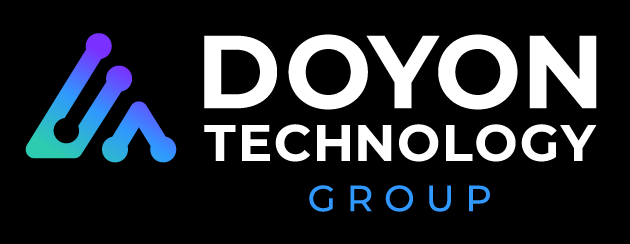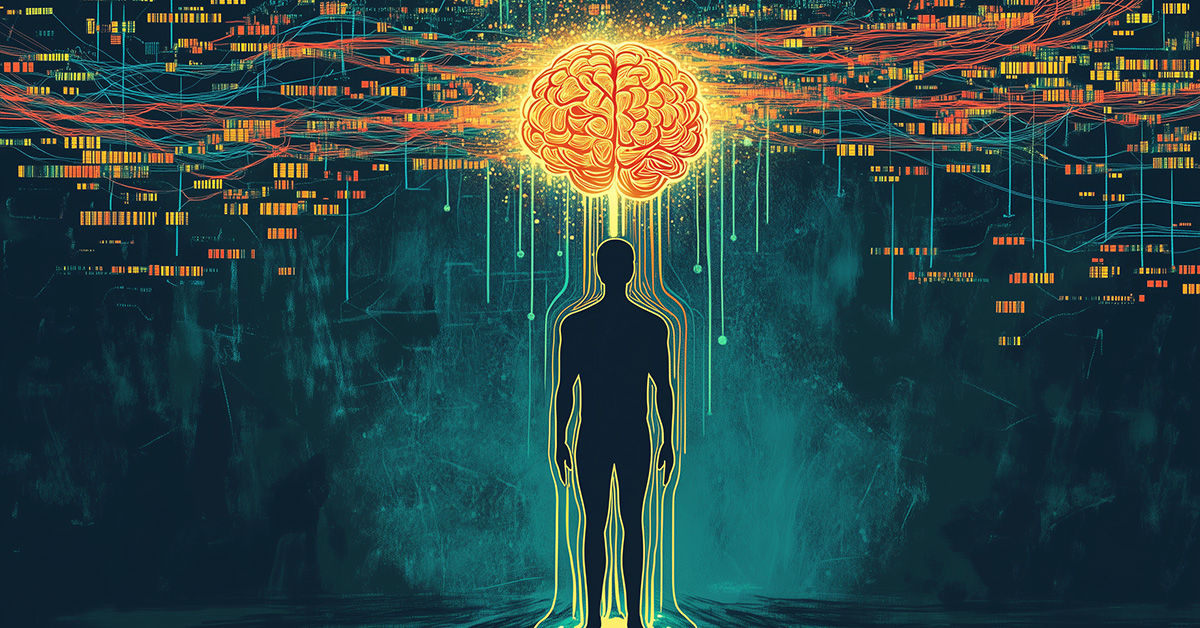When teenagers are using AI to diagnose cancer, it’s time to strike through Malcolm Gladwell’s 10,000-hour rule. Becoming an expert today is very different than it’s ever been.
Since the beginning of time, becoming a master meant embracing the grind and paying your dues. With skills honed over decades, experts are magicians. It seems like they instinctively know how to handle every problem they encounter. An expert’s brain draws on past experiences – pattern matching an old problem to whatever is in front of them. The rest of us? We have been stuck plodding along, climbing that expertise ladder one mistake at a time.
But we don’t have to travel that hard knocks road anymore. For the first time in human history, we can tap into the collective knowledge and experiences of tens of thousands of experts. Instead of taking years to build up your expertise meter, you can use AI to analyze patterns, break down data, and give you insights that were – up until now – the sole purview of those with deep experience. And yeah, that’s a little scary, but it’s also really cool.
The gap between newb and grizzled vet is shrinking… fast. You are being gifted a superpower – use it. Why would anyone keep climbing the old expertise ladder when you can take the AI elevator to the top?
So Long, Farewell 40-Year Grind
You’ve seen the social media videos. The ones where the guy says something along the lines of, “You’re telling me for the past forty years I could’ve been doing this? Ain’t no way.” Then he watches an expert utilizing some trick or hack to make something complicated simple.
Watching an expert work is magic. Whether it’s a coder solving a nasty bug in minutes, a musician improvising a solo that gives you chills, or a surgeon making a split-second decision in the middle of a delicate procedure, experts make it look effortless.
The truth is their “magic” comes from years of repetition and refinement. They’ve built a mental experience library. They don’t even think about it anymore, they just know. Psychologists call this the Dreyfus Model of Skill Acquisition: a framework that defines the stages of learning through progressively deeper mastery and intuitive decision-making. Basically, when you’re new, you rely on rules and checklists. But as you gain experience, those rules start to fade, and you run on instinct. Sounds cool, right? The catch? That level of instinctive mastery takes a long time to develop, a really long time.
There Has to Be a Better Way
Think back to when you first tried something completely new. Maybe you read every blog on google trying to figure out an Excel formula, or had to create a resume for the first time but didn’t know where to start. When you’re trying something new, everything feels clunky. Every step is like walking through wet cement. Your brain second-guessing every move as you struggle just to get through the basics.
It’s the natural learning process, but let’s be honest, it’s slow. You don’t have time for that.
So, how do you fast-track that slow, grind-it-out path to expertise? Enter AI doing its best superhero landing. Dropping out of the sky ready to change your life. Or more accurately, AI is Thor’s hammer (I know it’s called Mjolnir, but we have to keep this readable for the non-nerds). AI gives you superpowers. It’s like having a subject matter expert whispering in your ear, giving you all the secrets without the years of blood, sweat, and tears.
Imagine instantly tapping into the collective knowledge of thousands of experts. With tools like ChatGPT or Copilot, you don’t just get answers, you get a crash course in recognizing patterns, picking strategies that work, and recognizing the signals amongst the noise.
Remember when learning something new meant slowly inching your way through a maze of mistakes? AI rewrites that script. Instead of laboring through the slow and uncertain learning process, you can make decisions with the confidence of someone who’s been in the game for decades. AI gives you the power to leapfrog the competition, skipping over years of grinding and jumping straight to the good stuff, expert-level insights at lightning speed.
Breaking the Experience Barrier
Instead of spending years gathering experiences and “learning the hard way,” AI lets you hack the system. While an expert might come across 200 examples of a problem throughout their career, AI can give you 1,000 examples to analyze in an afternoon. It’s not just faster learning, it’s deeper learning. You’re diving into a well of knowledge that would take most people a lifetime to collect. Suddenly, those years of practice that once seemed unavoidable, not so unavoidable anymore.
The Power of Memetic Analysis
Success leaves clues, patterns that if you can spot them, give you a huge advantage. These patterns, called “memes” are everywhere. We’re all familiar with internet memes, but memes as described in Richard Dawkins 1976 book, The Selfish Gene, are everywhere. You’ll see successful patterns repeated in bestselling books, viral marketing campaigns, and hit songs. And now AI can find those patterns for you.
Have you ever noticed how certain book titles just seem to sound good? There’s a reason for that. Memes. These titles use recurring ideas that have caught on with the zeitgeist. Your ability to identify and replicate them goes a long way towards the success of your project. This is where you hold out your hand and Thor’s hammer comes flying in. Instead of analyzing patterns for weeks or even years, AI can identify them in minutes.
One of my favorite books is James Clear’s Atomic Habits. That title was a lot more than just a lucky guess. James analyzed 150 nonfiction books that sold over a million copies and found a common pattern amongst a lot of the titles: “The ___ of ___.” Think The Power of Habit, The Life-Changing Magic of Tidying Up, The Art of War, and on and on. He took that information and came up with his own twist, combining “habits” with the word “atomic,” implying something small yet powerful. The result? A title that gave him the best chance to stand out amongst the sea of new releases.
Instead of spending months trying to find trends, AI can break down patterns across hundreds or thousands of bestselling titles, products, or marketing campaigns. Whether you’re trying to name your next big idea or create the perfect headline, AI gives you the keys to reverse-engineer success. Then, you can put your own spin on it.
A Step-by-Step Guide to Using AI for Memetic Analysis:
- Collect Data: Start by gathering examples of what you want to analyze, whether it’s book titles, headlines, or product names.
- Analyze Using Your Generative AI Tool of Choice: Feed your data to ChatGPT, Copilot, Gemini, Claude, etc. and ask it to identify recurring patterns. Refine your prompts for more specific results. Ask for templates and trends.
- Apply Patterns to Your Work: Take these patterns and give them your twist. Find what works and make it your own.
Extending AI Beyond Titles
AI’s power doesn’t stop at book titles. Whether you’re shaping content strategy, analyzing writing styles, or even breaking down successful article structures, AI is your secret weapon. Think of it as having an assistant who’s not only fast but oddly good at spotting things that work.
Want to match the tone of a publication like Wired? Feed AI a few sample articles and let it break down the tone, structure, and word choice. Need an opening hook? AI can analyze top openings in your genre and show you what grabs attention. It’s a creative partner who’s one step ahead.
AI for Advanced Summarization and Automation
If you need to analyze mountains of research look at AI models like Claude which can handle massive text volumes and summarize key points in minutes. Whether it’s 150,000 words or just a few articles, AI gives you insights fast. And if you expect to have to answer questions about your research, have AI simulate tough Q&A sessions.
The Enduring Value of Human Experience
AI can give you the information, but humans turn it into meaningful action. Take Atomic Habits, the title followed a proven pattern, but it was James Clear’s personal stories that made the book resonate. The human touch makes experiences memorable.
Perfection is overrated. Imperfections and personal connections bring content to life. AI is our superhero hammer, but we are Thor. It’s our discernment, taste, and creativity that drive innovation.
A Future Where AI and Human Expertise Coexist
AI is transforming the path to expertise, but it’s still the human touch that sets us apart. The future isn’t a battle between humans and machines, it’s a partnership. AI shortcuts learning, cheats the long road to expertise, and pushes us to be better, but it’s our instincts that drive the car.
AI Is Your Heroic Enhancer
It’s past time to embrace AI. AI provides structure while your perspective gives meaning. Blend the two, and you unlock a future where learning is limitless.
If you’re ready to apply AI to your day-to-day processes but don’t know where to start, that’s where we come in. Reach out to Doyon Technology Group today at connect@doyontechgroup.com to start a conversation with an AI expert.
––––––
About the Author

Greg Starling serves as the Head of Emerging Technology for Doyon Technology Group. He has been a thought leader for the past twenty years, focusing on technology trends, and has contributed to published articles in Forbes, Wired, Inc., Mashable, and Entrepreneur magazines. He holds multiple patents and has been twice named as Innovator of the Year by the Journal Record. Greg also runs one of the largest AI information communities worldwide.
Doyon Technology Group (DTG), a subsidiary of Doyon, Limited, was established in 2023 in Anchorage, Alaska to manage the Doyon portfolio of technology companies: Arctic Information Technology (Arctic IT®), Arctic IT Government Solutions, and designDATA. DTG companies offer a variety of technology services including managed services, cybersecurity, and professional software implementations and support for cloud business applications.

